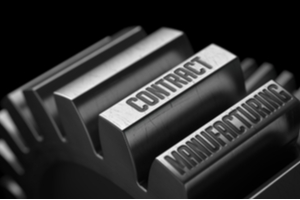
What characterises a highly flexible contract manufacturing partnership? What benefits can it bring OEMs seeking an ongoing, competitive advantage?
How contract manufacturers raced to the bottom
In 2010, the writers of the book ‘Vested Outsourcing’ described the highly commoditised, ‘adversarial’ contracting process that was the norm back then. It was a process during which businesses screwed down on price, then dumped requirements on their chosen contractor. They then awaited delivery, no doubt, with pursed lips and folded arms:
“When a firm outsources a pivotal business operation to a service provider, the client’s costs and the provider’s pricing usually rule the relationship. The client wants lower costs and the supplier wants the best price for its services, so their dynamic is usually adversarial. To get a lower cost, a firm has to browbeat its service provider, while the provider – who usually operates on a fee-per-transaction basis – has every incentive to make more money by working at the lowest possible cost, even if that is inefficient.”
Post-delivery, the whole, combative cycle simply started again in a never ending race to the bottom over price.
Times have changed
More than 10 years later, this landscape has changed. And it’s had to. The complexity of the tasks that are being outsourced to manufacturing partners is requiring more flexibility, transparency and co-operation on both sides to realise its benefits.
The result is Electronics Manufacturing Services (EMS) providers have had to deliver more than just flexibility on price. Deriving greater value from outsourced manufacturing is now a function of the agility, innovation and technical leadership that a contract manufacturer can offer. It’s not just a function of ‘how low they can go’ in price.
How highly flexible contract manufacturers support high tech development
They can be inspirational
The best EMS providers around the world are bringing new and creative solutions to OEMs. They are levering the insights gained from other relationships up and down the supply chain to make proactive suggestions around new materials, assembly techniques and test processes.
A good EMS needs to do more than simply ‘follow your instructions’, they should share their thinking and expertise to add value throughout the product life-cycle. This, of course, requires OEMs to be flexible and open-minded in their own right. Continuous improvement through the flexible adoption of new ideas cuts both ways.
They are highly agile and responsive
Because of the economies of scale they command and their sole focus on production, EMS providers can often source vital raw materials and components more readily and cheaply than an OEM can do themselves.
They should have the capacity and agility to scale production up and down as and when required, ensuring their clients can meet new and unexpected customer demands easily and as required.
A truly flexible, electronic contract manufacturer can help you make any adjustments to your design without sacrificing your project’s timelines. They should have the right technology and integrations to make sharing documentation, specifications and schematics instantaneous and secure.
They help boost your productivity
This is one of the key reasons companies choose to outsource - maximising their overall productivity by handing over responsibility for manufacturing to a specialist.
Great outsourced production facilities are state of the art. They need to be, to accommodate the needs of a diverse set of clients. The right EMS provider is set up to help you with all kinds of tasks, from fast prototyping to design troubleshooting, as well as rapid production at the volumes you require. They should have the technology and the finely honed New Product Introduction (NPI) processes to hit the levels of production you need quickly, and to the required standards.
So, while you’ve got peace of mind that production is being handled correctly and in a scalable way, you can focus on prospecting and selling, confident that you can handle the resulting orders with ease.
In a hyper-competitive market place, commercial survival depends on a concentration on innovation. Research shows that nearly 30% of a high tech company’s revenues and 25% of their profits are derived from the sale of new products. As companies like Apple have discovered - delegating product build to third parties, is essential to free up resource and concentrate on developing the successful products of the future.
They can scale with you
In a competitive marketplace, flexible outsourced manufacturers are constantly looking to equip themselves with the right machinery and skills to meet the changing demands of their customers. ISO certifications will demonstrate a businesses ability to manufacture products to internationally recognised standards, as well as their commitment to efficiency, risk-based thinking and continual improvement across their organisation.
Then, there’s the ability to offer additional services, such as packaging, shipping, delivery, customer service and returns.
Modern EMS providers are always expanding and refining their services to offer greater value for their customers, anticipating their clients’ needs and demands to keep in lockstep with industry trends.
This requires intense organisational agility driven by deep sector knowledge, investment in changing technology, and a focus on continuous improvement.
Outsourced manufacturing is the engine of the modern high tech industry
Success in outsourced manufacturing is no longer about winning a race to the bottom in terms of price. It is about creating specialist partnerships which add value to a business; making better and more profitable products, while helping lean businesses grow into new opportunities.
